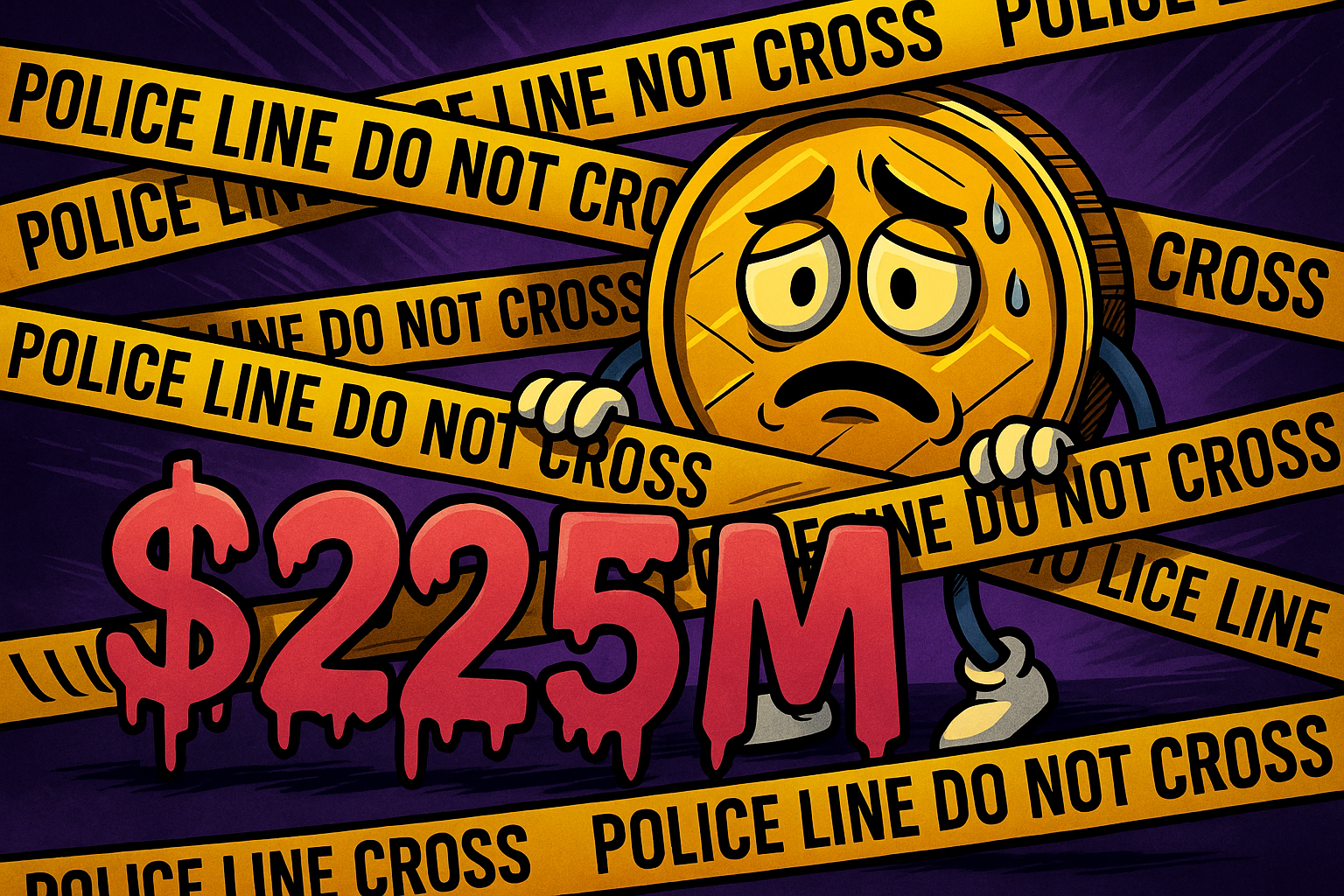The US DOJ Seeks to Seize $225M in Crypto from Pig Butchering Scams

The US DOJ Seeks to Seize $225M in Crypto from Pig Butchering Scams
The US DOJ Files to Seize $225M in Crypto Tied to Pig Butchering Schemes
The U.S. Department of Justice (DOJ) has filed a civil forfeiture complaint to seize more than $225 million in cryptocurrency. The funds are allegedly connected to widespread investment scams, many of which fall under the category of “pig butchering.”
According to a Wednesday announcement, the U.S. Secret Service seized the assets following a major fraud investigation. Officials stated that over 400 people had been defrauded, with total losses in the millions of dollars.
“We intend to use these funds to make victims whole again,” said Interim U.S. Attorney for D.C. Jeanine Pirro, a former Fox News host.
The US DOJ, What Is Pig Butchering?
The DOJ did not provide full details of the scams. However, Tether, a stablecoin issuer that assisted the investigation, confirmed the crypto was tied to pig butchering fraud.
In these scams, criminals build fake relationships with victims over time. Eventually, they trick them into investing large sums into fraudulent crypto schemes. Each interaction is designed to “fatten” the victim for a major financial “slaughter.”
According to the FBI’s Internet Crime Complaint Center, crypto investment scams caused $5.8 billion in reported losses in 2024 alone. Overall, Americans lost more than $9.3 billion to scams involving digital assets last year.
Nationwide Efforts to Combat Crypto Fraud
On the same day, officials in New York announced the seizure of $140,000 and the freezing of another $300,000 related to a social media-based crypto scam. This particular scheme affected over 300 victims and caused losses exceeding $1 million.
During a press conference, Pirro emphasized the DOJ’s commitment to cracking down on crypto fraud. When asked whether this approach would extend to President Donald Trump’s connections to the crypto industry, Pirro declined to comment. Instead, she noted that the DOJ’s focus remains on protecting everyday Americans from financial exploitation.
She also referenced the Senate’s recent passage of the GENIUS Act, which seeks to regulate stablecoins, as a step toward broader digital asset oversight.
What Comes Next?
The civil forfeiture filing does not accuse specific individuals. Instead, it targets the seized assets themselves under U.S. asset forfeiture law.
The DOJ said it would continue collaborating with law enforcement and blockchain companies to trace illicit funds and return them to victims when possible.




